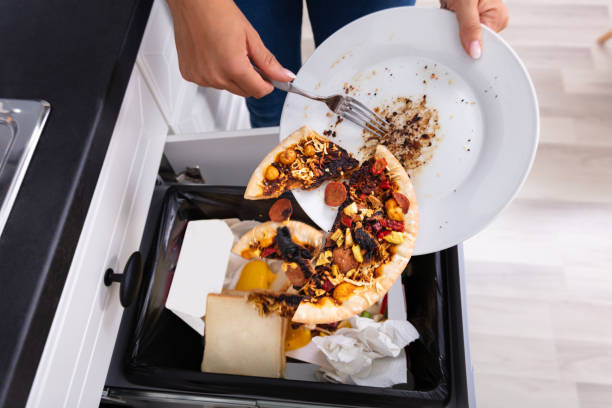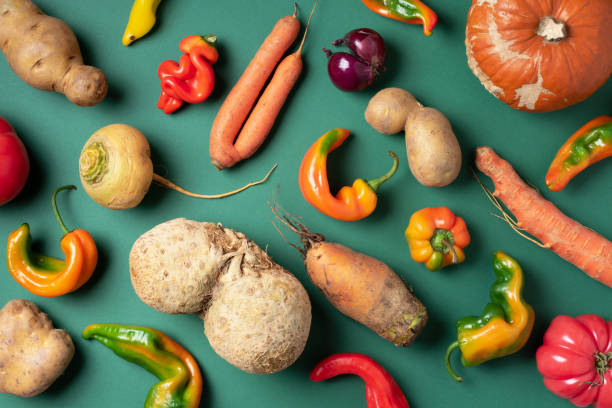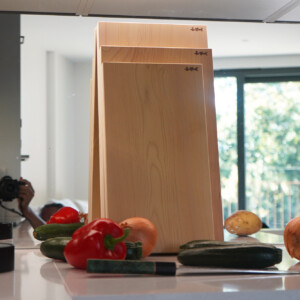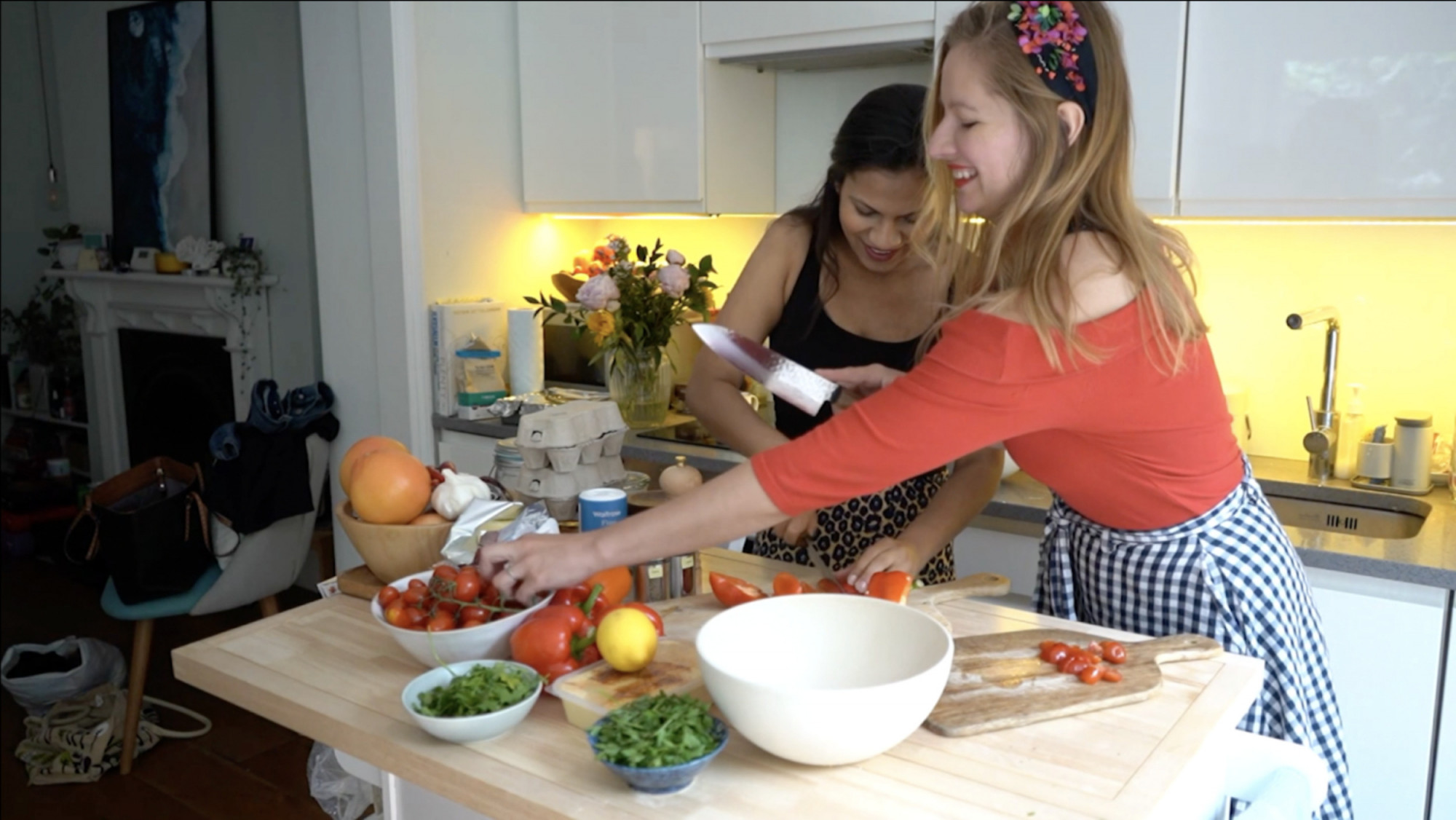In today’s fast-paced world, where convenience often trumps consciousness, a quiet revolution is taking place in kitchens across the globe. Home cooking, once considered a daily chore, is emerging as a powerful tool in the fight against climate change and environmental degradation. This resurgence of culinary creativity within our own four walls is not just about satisfying our taste buds; it’s about nourishing our planet and fostering a more sustainable future.
The Hidden Cost of Convenience
Before we delve into the benefits of home cooking, let’s take a moment to consider the current state of our food system. In our quest for convenience, we’ve inadvertently created a monster – a system that prioritizes speed and ease over sustainability and health.
The modern food industry is characterized by:
- Excessive packaging: From individually wrapped snacks to triple-layered takeout containers, our food often comes swathed in layers of plastic and cardboard.
- Long supply chains: Many of the items on our plates have traveled thousands of miles before reaching us, leaving a substantial carbon footprint in their wake.
- Food waste: Approximately one-third of all food produced globally goes to waste, contributing to greenhouse gas emissions and squandering valuable resources.
- Processed foods: Highly processed foods not only often lack nutritional value but also require more energy to produce and package.
- Disposable culture: The rise of single-use items in our kitchens and dining rooms has led to mountains of waste in our landfills.
This system is unsustainable, and as conscious consumers, we need to reimagine our relationship with food. This is where home cooking enters the picture, offering a delicious solution to many of these problems.
The Sustainable Benefits of Home Cooking
1. Reduced Packaging Waste
One of the most immediate benefits of home cooking is the significant reduction in packaging waste. When we prepare meals at home, we have the power to choose ingredients that come with minimal packaging. By opting for fresh produce, bulk grains, and locally sourced meats, we can dramatically cut down on the amount of plastic and cardboard that ends up in our trash bins.
Moreover, home cooking allows us to store leftovers in reusable containers, further reducing our reliance on single-use plastics. Imagine a world where every meal doesn’t come with its own set of disposable packaging – that’s the world we create when we embrace home cooking.
2. Lower Carbon Footprint
The food on our plates often has a hidden carbon cost – the emissions associated with transportation, processing, and storage. Home cooking allows us to shrink this carbon footprint in several ways:
- Choosing local and seasonal ingredients: By selecting produce that’s in season and grown locally, we reduce the distance our food travels, thereby cutting transportation emissions.
- Reducing food waste: When we cook at home, we have more control over portions and can more easily use up ingredients before they spoil.
- Energy-efficient cooking: Modern home appliances are often more energy-efficient than industrial-scale processing equipment.
3. Healthier Ecosystems
Home cooking empowers us to make more informed choices about the ingredients we use. This awareness often leads to supporting more sustainable farming practices:
- Choosing organic produce: By opting for organic fruits and vegetables, we support farming methods that are less harmful to soil health and biodiversity.
- Sustainable seafood: When we cook fish at home, we can choose species that are not overfished and support sustainable fishing practices.
- Reduced demand for monocultures: Home cooking often involves a wider variety of ingredients, which can help promote agricultural diversity.

4. Mindful Consumption
Perhaps one of the most profound impacts of home cooking is how it changes our relationship with food. When we prepare our own meals, we become more aware of:
- The true cost of our food: Both in terms of money and resources.
- The effort that goes into meal preparation: Leading to greater appreciation and less waste.
- The quality of our ingredients: Encouraging us to seek out better, more sustainably produced foods.
This mindfulness often extends beyond the kitchen, influencing our overall consumption habits and leading to a more sustainable lifestyle.
The Art of Sustainable Home Cooking
Now that we understand the environmental benefits of home cooking, let’s explore how we can maximize its positive impact:
1. Embrace the Whole Ingredient
One of the beauties of home cooking is the ability to use every part of an ingredient. This “nose-to-tail” or “root-to-stem” approach not only reduces food waste but also expands our culinary horizons:
- Use vegetable scraps to make homemade stock
- Turn stale bread into croutons or breadcrumbs
- Pickle leftover vegetables for future use
2. Master the Art of Preservation
Learning to preserve food is a crucial skill in sustainable home cooking. It allows us to extend the life of seasonal produce and reduce waste:
- Canning: Preserve fruits and vegetables at their peak freshness
- Fermenting: Create probiotic-rich foods while preserving vegetables
- Freezing: Store homemade meals and excess produce for future use
3. Plan and Prepare
Meal planning is a powerful tool in reducing food waste and making the most of your ingredients:
- Create weekly meal plans based on seasonal produce
- Prepare components in advance for quick weeknight meals
- Use leftovers creatively in new dishes
4. Invest in Quality, Durable Kitchen Tools
The tools we use in our kitchens can have a significant impact on our cooking experience and the environment. Investing in high-quality, durable kitchen tools not only enhances the joy of cooking but also reduces waste from disposable or short-lived items.
For instance, a set of well-crafted Japanese kitchen knives can last a lifetime with proper care. These knives, known for their exceptional craftsmanship and durability, embody the principles of sustainable consumption. By choosing such long-lasting products, we reduce the need for frequent replacements, ultimately decreasing the demand for resource-intensive manufacturing processes.
Moreover, quality kitchenware often performs better, making cooking more efficient and enjoyable. This can encourage us to cook at home more often, compounding the positive environmental impact of our culinary habits.
5. Explore Plant-Based Cooking
While not everyone may choose to adopt a fully plant-based diet, incorporating more vegetarian and vegan meals into our repertoire can significantly reduce our environmental impact:
- Experiment with meat alternatives like legumes and tofu
- Discover the versatility of vegetables as main course ingredients
- Learn to create satisfying plant-based versions of favorite dishes
6. Source Ingredients Responsibly
The ingredients we choose have a substantial impact on the sustainability of our home cooking:
- Shop at farmers’ markets or join a CSA (Community Supported Agriculture) program in your area
- Choose organic and fair-trade products when possible
- Opt for sustainably caught or farmed seafood
7. Cultivate a Kitchen Garden
Even in small spaces, growing some of our own food can be incredibly rewarding and sustainable:
- Start with herbs on a windowsill
- Grow salad greens in containers
- Experiment with vertical gardening for small spaces
The Ripple Effect of Sustainable Home Cooking
The impact of embracing sustainable home cooking extends far beyond our own kitchens. When we choose to cook at home with sustainability in mind, we create a ripple effect that touches various aspects of our lives and communities:
1. Economic Impact
- Supporting local farmers and producers
- Reducing healthcare costs associated with diet-related illnesses
- Saving money on dining out and packaged foods
2. Social Benefits
- Strengthening family and community bonds through shared meals
- Passing down culinary traditions and skills to younger generations
- Fostering a culture of sustainability and mindful consumption
3. Personal Growth
- Developing new skills and creativity in the kitchen
- Gaining a deeper appreciation for food and its origins
- Improving overall health and well-being through better nutrition
4. Environmental Advocacy
- Inspiring friends and family to adopt more sustainable practices
- Creating demand for eco-friendly products and packaging
- Encouraging local businesses to adopt more sustainable practices
Overcoming Challenges
While the benefits of sustainable home cooking are clear, it’s important to acknowledge that there can be challenges:
- Time constraints: In our busy lives, finding time to cook can be difficult. However, with proper planning and batch cooking, it’s possible to enjoy home-cooked meals even on hectic days.
- Skill level: Not everyone feels confident in the kitchen. The key is to start simple and gradually build your skills. There are countless resources available, from cookbooks to online tutorials, to help you on your culinary journey.
- Initial costs: Setting up a well-equipped kitchen might seem expensive at first. However, investing in quality, durable tools (like those exceptional Japanese knives we mentioned earlier) can save money in the long run by reducing the need for replacements and encouraging more home cooking.
- Availability of ingredients: Depending on your location, finding certain sustainable or local ingredients might be challenging. In such cases, focus on what is available and gradually expand your options as you become more familiar with local sources.
Embracing Imperfection

As we strive towards more sustainable home cooking practices, it’s important to remember the Japanese concept of wabi-sabi – finding beauty in imperfection and transience. This philosophy applies perfectly to our culinary journey:
- Appreciate the irregularities in homegrown produce
- Find joy in the process, not just the end result
- Embrace the learning curve and celebrate small victories
Remember, every meal cooked at home is a step towards a more sustainable future, regardless of how simple or elaborate it might be.
The Path Forward: Kaizen in the Kitchen
Another relevant Japanese concept is kaizen – the idea of continuous improvement. Apply this to your sustainable home cooking journey:
- Start small: Begin with one sustainable practice and gradually add more
- Learn constantly: Stay curious about new ingredients, techniques, and sustainability practices
- Reflect and adjust: Regularly assess your habits and look for areas of improvement
Cooking Up a Better Future
As we face the environmental challenges of the 21st century, it’s easy to feel overwhelmed. However, sustainable home cooking offers us a tangible, delicious way to make a difference every single day. By choosing to prepare our meals at home, using quality, long-lasting tools, and focusing on sustainable ingredients and practices, we’re not just feeding ourselves – we’re nourishing the planet.
Every time we step into our kitchens, we have the power to make choices that ripple out into the world, influencing our health, our communities, and our environment. So the next time you’re deciding what’s for dinner, remember: your choices matter. By embracing sustainable home cooking, you’re not just preparing a meal – you’re participating in a quiet revolution, one that’s creating a more sustainable, delicious future for us all.
So pick up (preferably high-quality, long-lasting) kitchen tools and get cooking. The planet will thank us, one home-cooked meal at a time.


















